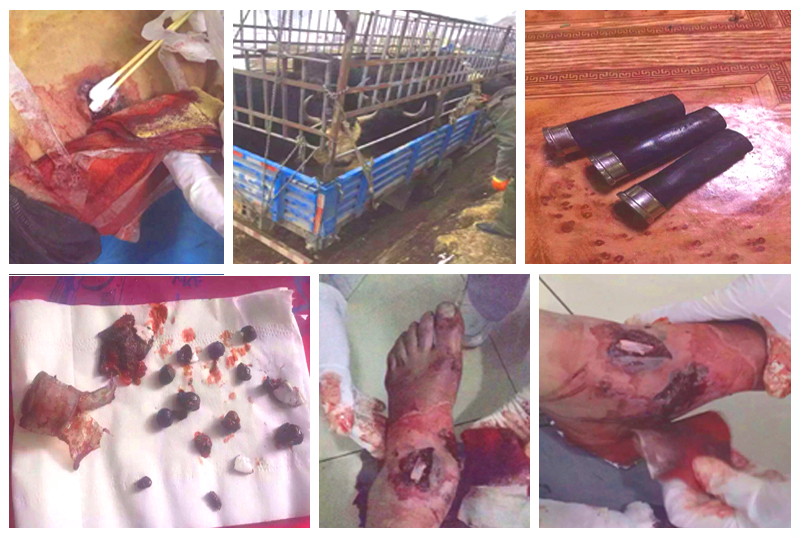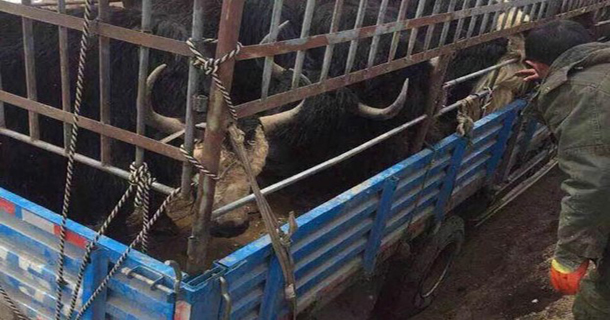Chinese police open fired on a group of Tibetans in Serta County, Eastern Tibet during a clash between local Tibetans and a group of Chinese Muslims over stolen yaks. According to sources from the region, the Chinese Muslims were stealing and loading around 30 yaks into their trucks to take to a slaughterhouse.
The confrontation took place on March 30 and at least three Tibetans were seriously injured during the shooting. Two of them were taken to hospital in the provincial capital Chengdu for treatment as the local hospital could not treat them, sources told Radio Free Asia on conditions of anonymity.
The Tibet Post has reported that two people may have been killed in the shooting and that the former Tibetan Politial prisoner Golog Jigme, now living in Switzerland, told them, “When a herder found that a few of his animals had gone missing, he went to look for them and found the loaded vehicles. While he tried to enquire about the animals in the truck, the driver failed to answer his questions and called Chinese police to intervene.”
He also said that the owners failed to convince the police to help them. Instead, the police supported the thieves and shot the Tibetans.
In recent years there have been many incidents of clashes between Tibetans and Chinese people over animal theft and the operation of slaughterhouses in Tibetan areas. In 2007, New York-based Human Rights Watch said in their report No One Has the Liberty to Refuse that there was an increased number of protests by Tibetans against the building of Chinese operated slaughterhouses in Tibetan areas. Later, in November 2011, Tibetan herders demolished a Chinese-owned slaughterhouse in Sichuan following theft of their livestock.
Since the start of China’s resettlement programme, more than 100,000 Tibetan nomad families in Qinghai province have been resettled, according to a report by Reuters in June 2013. The programme has forced people to give up their animals and in some cases they were asked to donate their animals to the state; this has led to many protests in Tibet.






 Print
Print Email
Email